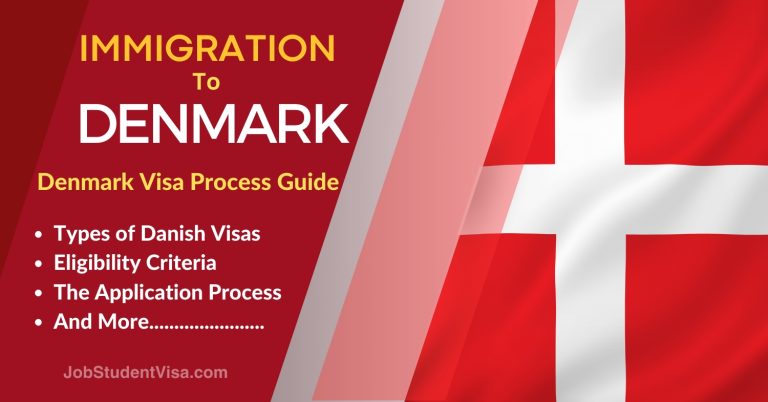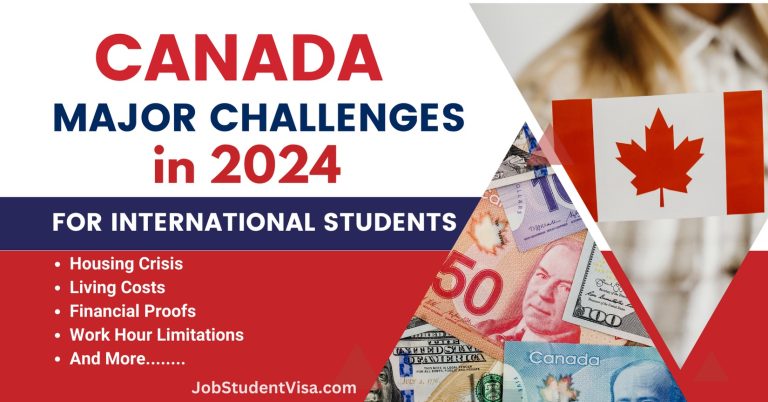Canada STEM Immigration Visa Process and Guidelines with Top Demanded Subjects
Canada, known for its progressive immigration policies, has become a hub for skilled professionals in Science, Technology, Engineering, and Mathematics (STEM). The demand for STEM professionals in Canada’s labor market has led to tailored immigration pathways. This guide provides an in-depth look at the process and guidelines for STEM professionals seeking to immigrate to Canada.
Canada STEM Immigration Visa Process
Canada’s Immigration Landscape for STEM Professionals
The Canadian immigration system offers various programs designed to attract skilled workers, especially in STEM fields. These programs are part of Canada’s strategic plan to bolster its workforce with skilled professionals who can contribute significantly to its economy and technological advancement.
Express Entry: A Gateway for Skilled STEM Professionals
Express Entry is Canada’s primary system for managing applications for permanent residence from skilled workers. It uses a Comprehensive Ranking System (CRS) to evaluate candidates based on factors like age, education, work experience, language proficiency, and Canadian connections.
- Eligibility: Candidates must qualify under one of the three federal immigration programs: the Federal Skilled Worker Program, the Federal Skilled Trades Program, or the Canadian Experience Class.
- CRS Score: Factors contributing to the CRS score include language skills (English and French), educational qualifications (especially relevant for STEM candidates), work experience, and adaptability factors like Canadian work experience or a Canadian spouse.
Provincial Nominee Programs (PNPs)
PNPs enable Canadian provinces to nominate candidates for immigration based on local labor market needs. Several provinces have streams specifically targeting STEM professionals.
- PNP Streams for STEM: Provinces like Ontario, British Columbia, and Alberta have PNP streams that prioritize STEM professionals, often focusing on specific sectors like information technology, engineering, and health sciences.
Global Talent Stream for Fast-Track Work Permits
The Global Talent Stream (GTS) is part of Canada’s Temporary Foreign Worker Program, offering expedited work permits to highly skilled workers, including STEM professionals.
- Quick Processing: GTS applications are typically processed within two weeks.
- LMIA Requirement: Employers need to obtain a Labour Market Impact Assessment (LMIA), demonstrating the need for a foreign worker and the absence of suitable Canadian candidates.
Study-to-Immigrate Pathway for STEM Graduates
International students graduating from Canadian STEM programs have favorable pathways to permanent residence.
- Post-Graduation Work Permit (PGWP): Allows graduates to gain Canadian work experience, a valuable factor in the CRS scoring system.
- Canadian Experience Class: This Express Entry program offers a pathway to permanent residence for international graduates with Canadian work experience.
Language Proficiency and Credential Assessment
- Language Tests: Proficiency in English or French is critical, assessed through IELTS, CELPIP, or TEF examinations.
- Educational Credential Assessment (ECA): Foreign STEM qualifications must be assessed for Canadian equivalency, essential for points calculation in the CRS.
Application Process Steps
- Profile Creation: Create a profile in the Express Entry system or a PNP, if applicable.
- ITA and Application Submission: After receiving an Invitation to Apply (ITA), submit a detailed application with supporting documents.
- Biometrics and Interview: Attend an interview and provide biometrics if required.
- Final Decision and Preparation for Arrival: Upon approval, prepare for relocation to Canada.
Challenges and Considerations
- Processing Times: Can vary, especially influenced by program type and application volume.
- Job Market Research: Awareness of the Canadian STEM job market is crucial for aligning skills with demand.
Conclusion
The pathway for STEM professionals to immigrate to Canada involves navigating various programs and meeting stringent criteria. The country’s emphasis on attracting skilled STEM talent is evident in its tailored immigration processes, which offer immense opportunities for professionals seeking growth in a dynamic and supportive environment.
Further Resources
For the latest information and personalized advice, consult the official IRCC website or contact a licensed immigration consultant.
Top Demanded STEM Subjects in Canada for 2025
As we look towards 2025, certain STEM (Science, Technology, Engineering, and Mathematics) subjects are expected to be in high demand in Canada. This demand is driven by technological advancements, economic trends, and the evolving needs of the Canadian labor market. Here’s a list of some of the top STEM subjects that are anticipated to see significant demand:
- Artificial Intelligence and Machine Learning: With the rapid growth of AI in various sectors, expertise in this area is increasingly sought after.
- Cybersecurity: As digital threats evolve, the need for skilled professionals in cybersecurity is critical.
- Data Science and Big Data Analytics: The ability to analyze and interpret large sets of data is invaluable in many industries.
- Renewable Energy and Sustainability: With a global push towards sustainable solutions, skills in renewable energy technology will be crucial.
- Biotechnology and Genetic Engineering: Innovations in healthcare and agriculture are driving demand in these fields.
- Robotics and Automation Engineering: Automation technology is transforming manufacturing, logistics, and many other industries.
- Environmental Science: Addressing climate change and environmental challenges will require expertise in this area.
- Software Development and Programming: The backbone of the tech industry, these skills remain in high demand.
- Quantum Computing: An emerging field that is expected to revolutionize various sectors.
- Virtual and Augmented Reality: Expanding beyond gaming into education, healthcare, and real estate.
These subjects align with the projected growth sectors in Canada’s economy and represent areas where skilled professionals are likely to find numerous opportunities. As technology and societal needs evolve, the demand in specific STEM areas may shift, and staying informed about industry trends is crucial for those planning a career in these fields.






